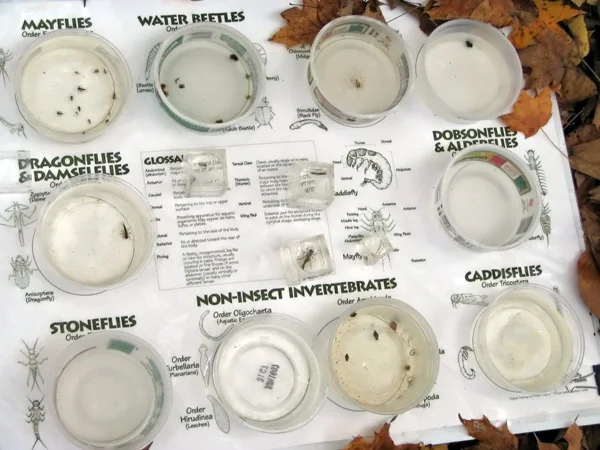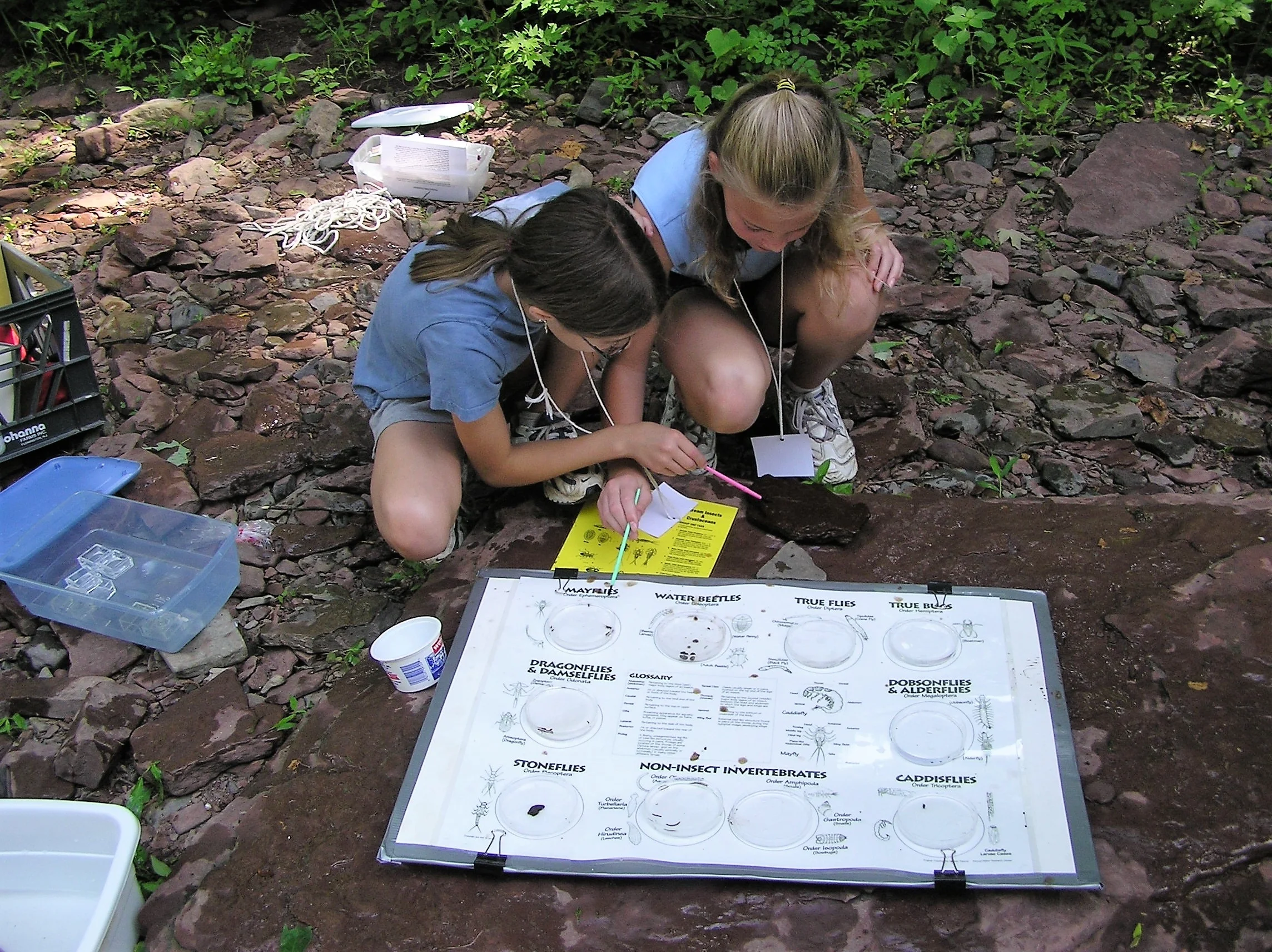Spring Surprises! (Pre-School)
Young learners will delight in the opportunity to use their senses to experience the wonders of spring! We will marvel at Spring's pastel flowers, fragrant plants, seasonal sounds and soft, moist "touches." The Conservancy's paths will offer bountiful delights to our small groups of 10 -12 learners per leader. Everyone must bring their special tools (eyes, ears, nose, and fingers) to fully enjoy this season at its best!
Spring Sense-sations! (Kindergarten)
Our lesson begins with a letter from a dear ‘friend.’ She is old and forgetful and needs our help to learn all we can about this wondrous season. Using our ‘special tools’ of smell, sight, touch, and hearing, we head out to gather information and learn about that is Spring! Through a variety of activities including a feast of touches, wildlife concert, and a leafy tea party, we share our findings and revel in our adventures!
Fee:
* $7.50 per student ($75 minimum fee per class at The Conservancy). One free adult chaperone per five students.
* Each program is 60 minutes in length and includes use of the Children's Discovery Room and picnic facilities.
Contact: Reservations can be made by contacting our education department at education@perkiomenwatershed.org
What the teachers are saying:
I love bringing my students to your site. The staff is excellent - you know just how to reach pre-school children. The Discovery Room is wonderful!
-Teacher, Twin Acres Country Day School
PDE Academic Standards addressed by this lesson include:
4.1.PK.A - Identify living and nonliving things in the immediate and surrounding environment.
4.1.PK.D - Identify basic needs of living things.
4.1.PK.E - Identify the change of seasons in the environment.
4.1.PK.F - • Distinguish between scientific fact and opinion. • Ask questions about objects, organisms and events. • Understand that all scientific investigations involve asking and answering questions and comparing the answer with what is already known. • Plan and conduct a simple investigation and understand that different questions require different kinds of investigations. • Use simple equipment (tools and other technologies) to gather data and understand that this allows scientists to collect more information than relying only on their senses to gather information. • Use data/evidence to construct explanations and understand that scientists develop explanations based on their evidence and compare them with their current scientific knowledge. • Communicate procedures and explanations giving priority to evidence and understanding that scientists make their results public, describe their investigations so they can be reproduced and review and ask questions about the work of other scientists.
4.4.PK.C - Recognize that plants and animals grow and change.
3.1.PK.A1 - Recognize the difference between living and non-living things.
3.1.PK.A9 - • Ask questions about objects, organisms, and events. • Participate in simple investigations to answer a question or to test a prediction. • Use the five senses and simple equipment to gather data.
4.1.K.A - Identify the similarities and differences of living and non-living things within the immediate and surrounding environment.
4.1.K.D - Observe and describe what happens to living things when needs are met.
4.1.K.E - Identify how the changes of seasons affect their local environment.
4.1.K.F - • Distinguish between scientific fact and opinion. • Ask questions about objects, organisms and events. • Understand that all scientific investigations involve asking and answering questions and comparing the answer with what is already known. • Plan and conduct a simple investigation and understand that different questions require different kinds of investigations. • Use simple equipment (tools and other technologies) to gather data and understand that this allows scientists to collect more information than relying only on their senses to gather information. • Use data/evidence to construct explanations and understand that scientists develop explanations based on their evidence and compare them with their current scientific knowledge. • Communicate procedures and explanations giving priority to evidence and understanding that scientists make their results public, describe their investigations so they can be reproduced and review and ask questions about the work of other scientists.
4.4.K.C - Observe and describe stages of life cycles for plants and animals.
3.1.K.A1 - Identify the similarities and differences of living and non-living things.
3.1.K.C2 - Describe changes animals and plants undergo throughout the seasons.







